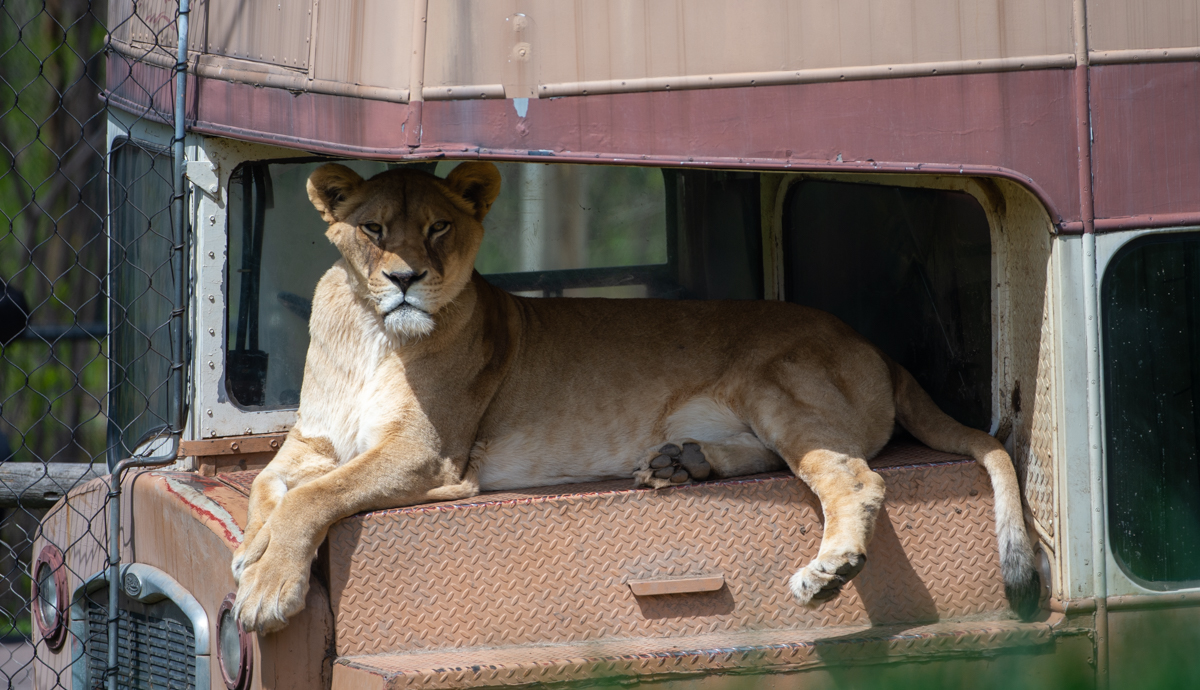Research on Reproductive Physiology of Lions Can Help with Conservation Strategies
The decline in wild populations of lions has led to the species being listed as vulnerable by the International Union for Conservation of Nature (IUCN). Knowing more about their reproductive physiology can help increase success in breeding in zoos, which in turn helps maintain healthy and genetically diverse populations. The research also provides insight into how lions reproduce in the wild and what factors may affect their reproductive success. This knowledge can be instrumental in developing effective conservation strategies.
Reproductive Evaluations & Research with Lions in Our Care
Introduction
Reproductive evaluations and research are essential for ensuring the survival of endangered species. Lions are among the most endangered wild animals in the world. As one of the top predators, they occupy a vital position in the ecosystem. In recent years, their population has significantly decreased due to habitat loss, human-lion conflict, and trophy hunting. Therefore, it has become critical to protect them through conservation and breeding programs. Reproductive evaluation and research play a vital role in advancing our knowledge of lion reproduction and management.
Reproductive Evaluations
Reproductive evaluations involve assessing the reproductive function of individual animals. In lions, various techniques can be used, including ultrasound, hormone monitoring, and behavioral monitoring. Ultrasound is a non-invasive technique used to evaluate the reproductive system’s health and assess the ovarian cycle. It helps determine ovulation patterns and the appropriate time for mating. Hormone monitoring also allows for the tracking of the ovarian cycle and detects pregnancy if it occurs. Behavioral monitoring involves observing the lion’s courtship and mating behavior to determine the mating season and monitor the reproductive success.
Research
Research helps in understanding various aspects of lion reproduction, and it involves the use of scientific methods to gather data. These studies examine the genetics, physiology, and behavior of the lions. They are essential in developing breeding programs and managing population demographics. Some of the important reproductive research studies on lions include sperm and semen analysis, embryo transfer, in-vitro fertilization, and molecular studies. Sperm and semen analysis assesses the quality and viability of the sperm, which is vital in identifying potential breeding males. Embryo transfer and in-vitro fertilization (IVF) are advanced reproductive technologies used to increase the success of breeding programs. IVF and embryo transfer can help conserve genetic diversity and allow for the reintroduction of lions into the wild. Molecular studies examine the genetic diversity and population structure of lions, which are important in developing breeding strategies that maintain genetic variation within a population.
Lions in Our Care
At the zoo, reproducing lions is an important part of conservation programs. Zoos are often tasked with managing the genetic diversity of lion populations in their care. To meet this objective, it is important to develop breeding strategies that manage the genetic diversity, and reproductive evaluations and research help to identify breeding males and females. These programs aim to preserve genetic diversity, maintain a sustainable population, and educate the public about the value of conservation.
Conclusion
Reproductive evaluations and research are essential in ensuring the survival of endangered species like lions. They help to identify potential breeding males and females, as well as assess the reproductive function and health of individual animals. Research is vital in understanding various aspects of lion reproduction and in developing breeding strategies that maintain genetic diversity within populations. Lion populations in captivity play an important role in conservation efforts, and zoos have a responsibility to manage the genetic diversity and educate the public about the importance of conservation. By prioritizing reproductive evaluations and research, we can contribute to the conservation of one of the world’s most iconic animals, the lion.

